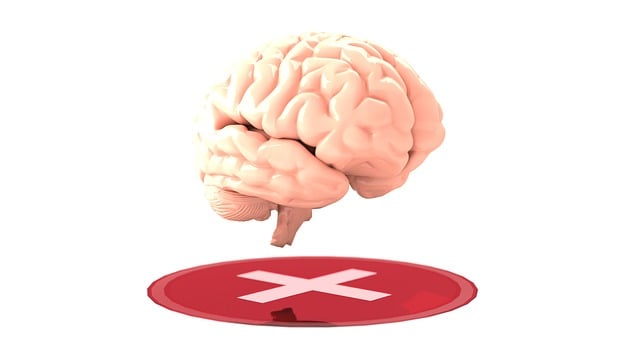Training Programs for Crisis Intervention Teams: Supporting Young Children’s Mental Health
Crisis counseling for young children requires specialized approaches, focusing on building empathy a…….
In the complex landscape of mental health support, therapy for young children crisis counseling stands as a specialized field dedicated to addressing the unique needs of infants, toddlers, and preschoolers facing emotional, behavioral, or trauma-related crises. This critical service aims to help young children develop healthy coping mechanisms, enhance their resilience, and navigate life’s challenges with greater ease. As society recognizes the importance of early intervention and mental well-being, therapy for young children crisis counseling has emerged as a vital component in fostering resilient and adaptable individuals. This article delves into the intricacies of this field, exploring its definition, global impact, economic considerations, technological advancements, policy framework, challenges, successful case studies, and future prospects.
Therapy for young children crisis counseling is a specialized form of psychotherapy designed to support children aged 0-5 years who are experiencing acute emotional distress, trauma, or behavioral crises. It involves a range of evidence-based techniques tailored to the unique developmental stage of young children. The core components include:
The concept of crisis counseling for young children has evolved over the past few decades, driven by increasing recognition of childhood mental health issues and a growing body of research supporting early intervention. Historically, most mental health services focused on older children and adults, with younger ages often being overlooked or not adequately addressed. However, studies have shown that early interventions can significantly impact long-term mental health outcomes.
The 1980s and 1990s saw a surge in research highlighting the importance of early childhood experiences on later development, leading to a greater emphasis on preventive measures and early identification of mental health issues. This shift led to the development of specialized programs and training for professionals working with young children. The American Psychological Association (APA) and other professional organizations played pivotal roles in establishing guidelines and promoting evidence-based practices in child therapy.
Today, therapy for young children crisis counseling is recognized as a crucial component of comprehensive pediatric healthcare, school systems, and community mental health services. It aims to prevent more severe mental health issues later in life by fostering resilience, emotional regulation, and adaptive coping skills from an early age.
The impact of therapy for young children crisis counseling extends far beyond national borders, with many countries adopting and adapting these practices to suit their unique cultural and socioeconomic contexts. This global interest is driven by growing awareness of childhood mental health issues and the recognition that early intervention can break down intergenerational cycles of distress.
The therapy for young children crisis counseling market is influenced by several factors:
The economic benefits of investing in therapy for young children crisis counseling are substantial:
Technology has revolutionized therapy for young children crisis counseling through various digital tools and platforms:
Technological advancements have enhanced access to therapy, improved service delivery models, and facilitated research in several ways:
The development and delivery of therapy for young children crisis counseling are shaped by various policies and regulations:
Despite its benefits, therapy for young children crisis counseling faces several challenges:
Criticisms of therapy for young children crisis counseling include:
Setting: A low-income urban neighborhood in the US.
Challenge: High rates of trauma and behavioral issues among preschoolers, with limited access to specialized counseling services.
Solution: A community-based organization developed a crisis counseling program integrating play therapy and CBT tailored for young children. The program collaborated with local schools, healthcare providers, and law enforcement to identify at-risk children and refer them to services.
Outcomes: Within six months, the program served 150 children, resulting in significant reductions in aggression and anxiety symptoms. Parents reported improved parenting skills and enhanced child-parent relationships. The success led to increased funding and partnerships, enabling expansion to other neighborhoods.
Lessons Learned: Community collaboration is vital for reaching underserved populations. Tailoring interventions to cultural contexts ensures better engagement and positive outcomes.
Setting: A rural region in Australia with limited access to mental health professionals.
Challenge: Children and families in remote areas faced long travel distances to receive counseling services.
Solution: A telehealth initiative was launched, offering individual and group therapy sessions via video conferencing. Culturally sensitive materials and training were provided to therapists to address unique challenges faced by rural communities.
Outcomes: Over a year, the program served 120 children and families, with positive feedback from participants. Parents reported improved ability to manage their child’s emotional needs, and children demonstrated better self-regulation skills.
Lessons Learned: Telehealth effectively overcomes geographical barriers, ensuring access to specialized services in remote areas. Cultural sensitivity is essential for building trust and engagement within diverse communities.
The future of therapy for young children crisis counseling holds immense potential:
Therapy for young children crisis counseling plays a vital role in supporting emotional well-being, resilience, and healthy development during early childhood. With ongoing advancements in technology, research, and policy support, this field is poised for growth and positive impact on children’s lives and communities worldwide. Addressing challenges through innovative solutions and cultural sensitivity will ensure that more children have access to the specialized services they need to thrive.

Crisis counseling for young children requires specialized approaches, focusing on building empathy a…….